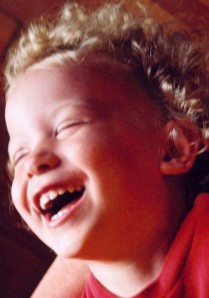I provide psychotherapy
for adults and children. I work with people experiencing a wide variety
of emotional difficulties, including adults who:
· Are depressed
or overly anxious
· Desire help
dealing with stress
· Have been
traumatized in childhood or adulthood
· Desire help
dealing with anger
· Are having
difficulty adjusting to life events or changes
· Have self-defeating/self-destructive behaviour
· Struggle
with addictive behaviour
I work with children who have
a wide variety of emotional and behavioural difficulties, including children
who:
· Have been
traumatized
· Are experiencing
symptoms of depression or anxiety
· Are oppositional
or defiant
· Manifest
an attachment disorder or attachment problem
· Display strong
fears
· Are having
difficulty with family changes or transitions
· Have difficulty
attending or modulating their activity
Most of my work with children
involves a combination of play therapy (see link at left), working with
the parent(s) and child together, and parent education/training. This helps
both to assist parents in understanding their child`s experience and to
facilitate parents being agents of change in their child`s healing and
growth.
My approach to working with
people emphasizes both compassion for the difficulties we face  and
supporting people to take responsibility for their own healing and growth.
I have been trained in a variety of approaches and techniques including
person-centered, psychodynamic, cognitive, behavioural, emotionally-focused,
gestalt, and family systems therapy. I have completed Level 2 training
in EMDR. I bring my expertise and experience to our working relationship
but ultimately my clients decide what we work on and what approach we work
with. All problems that people come to me with have emotional, cognitive,
and behavioural aspects, and I try to address each of these different areas.
and
supporting people to take responsibility for their own healing and growth.
I have been trained in a variety of approaches and techniques including
person-centered, psychodynamic, cognitive, behavioural, emotionally-focused,
gestalt, and family systems therapy. I have completed Level 2 training
in EMDR. I bring my expertise and experience to our working relationship
but ultimately my clients decide what we work on and what approach we work
with. All problems that people come to me with have emotional, cognitive,
and behavioural aspects, and I try to address each of these different areas.  If
it is suitable to the person, I also address the existential and spiritual
dimensions of their experience. I have learned that virtually all difficulties
that people come to me about have their roots in early life experience,
usually including painful and traumatic experiences, and are perpetuated by problematic ways
of experiencing and responding to their current environment. Research has
demonstrated that problems will diminish if we address either people's
early life experience or their ways of experiencing and responding to current
situations, and my experience indicates that the most effective and enduring
change comes from addressing both.
If
it is suitable to the person, I also address the existential and spiritual
dimensions of their experience. I have learned that virtually all difficulties
that people come to me about have their roots in early life experience,
usually including painful and traumatic experiences, and are perpetuated by problematic ways
of experiencing and responding to their current environment. Research has
demonstrated that problems will diminish if we address either people's
early life experience or their ways of experiencing and responding to current
situations, and my experience indicates that the most effective and enduring
change comes from addressing both.
I believe that it is very
important that psychotherapists have been in psychotherapy themselves,
both to address their own difficulties and in order to experience what
their clients do. Over the past 25 years I have received over 500 hours
of individual, couples, and group therapy provided by several different
practitioners. I encourage people to ask prospective therapists about the
extent of their own experience in psychotherapy and to choose someone who openly
discusses it. I also invite my clients to ask me any questions they wish,
either about my opinions about them or questions about myself or my practice.
I am always straight and honest in sharing my opinions about clients when they
ask, and would consider it to be a serious breach of trust to be misleading. Many psychotherapists come from the perspective that it is best to reveal little
or nothing about oneself to clients, and although I appreciate their rationale, I believe that clients are best served by knowing
whatever they wish about the person with whom they are trusting their most
personal experience.


